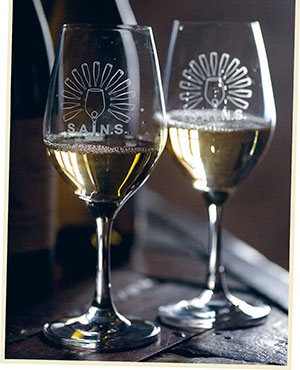
WHERE AND WHEN: GROWER ASSOCIATIONS
“I’ve always been a naturalist, so in 2000 I decided to start surrounding myself with like-minded people.”
(ANGIOLINO MAULE, THE FOUNDER OF VINNATUR)
Grower associations are an important part of the natural wine world. In Europe alone, there are more than half a dozen. Most of these are tiny, but there are a handful of larger ones that between them are the movers-and-shakers of the modern natural wine movement. With dozens, if not hundreds, of members in their fold, they provide an extraordinary resource for both growers and drinkers.
Most of the recent advances in wine science have been funded by large enterprise, which means the results tend to focus on issues that are of interest to the conventional, industrial wine community and so are often of little help to growers interested in working naturally. The associations, being grass-root organizations formed by clusters of growers who share a common philosophy, are therefore a great way to exchange ideas, experience, and knowledge. Many of them started out precisely for this purpose.
Associations also provide an opportunity for growers to pool their resources and raise awareness through joint tastings and conferences, where they can share their work with the trade and public at large. The trade, especially importers looking for new wine listings, for example, rely a great deal on these associations and their tastings, but they are also very useful for the end drinker. Given the current lack of regulation, many of these associations have their own charters of quality, which act as a guide to the association’s particular philosophy, while also providing drinkers with some basic quality assurance. Here are a few great examples:
S.A.I.N.S., created in 2012, is an association which, although small (only 12 members at present), punches well above its weight, thanks to it being the most natural of all the grower associations. It welcomes only those growers who produce wines without any additives whatsoever in all their cuvées.
VinNatur is a pioneering association because of its innovative collaborations with universities and research institutes, which it undertakes to further our understanding of natural wine in terms of growing and production, as well as its health implications for drinkers. While growers do not have to be certified organic to be part of VinNatur, the association does test samples from each of its members for pesticide residues. It works with any growers found with contaminated samples to help them gain confidence and go clean, but, as Angiolino Maule, founder of VinNatur, says, “Three strikes and they are out.” (For more on this important figure, see Bread, pages 62–63.)
The Association des Vins Naturels, in France, is the only grower association, other than S.A.I.N.S., to implement strict limits with regards to sulfite totals. For a grower to become a member, 80 percent of his or her production has to be without any added SO2 whatsover, while the remaining 20 percent has to sit under 20mg per liter for reds and 30mg per liter for whites, regardless of style and residual sugars.
With near on 200 members, La Renaissance des Appellations is the largest grower association of note. It was founded by biodynamic farming champion Nicolas Joly. (For more on this natural wine stalwart, see Seasonality & Birch Water, pages 44–45.) While not strictly a natural wine growers’ association (some members’ sulfite levels can be quite elevated), many of its members are natural. What’s more, it is also the only association where growers have to be certified organic or biodynamic in order to become a member.

S.A.I.N.S. is an association of growers who produce totally natural wine—100 percent fermented grape juice, produced without any additions whatsoever.